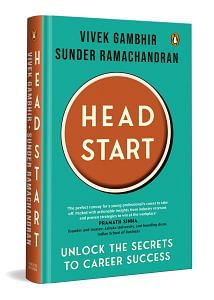Sometimes, it’s easy to forget that life is more than just the hours we spend at work. While our jobs are undoubtedly significant, they’re just one piece of the puzzle that makes up our existence. As the age-old saying goes, ‘All work and no play makes Jack a dull boy.’
Let’s unleash the transformative power of embracing life beyond the confines of our professional roles. We hope your job will bring you a lot of satisfaction, joy and meaning over the years. But work cannot replace the rewards of other things, such as close friendships and cherished hobbies.
By cultivating a multidimensional existence, you can experience life in all its vibrancy and richness. By the way, the benefits of a well-rounded life extend to the workplace as well. For example, pursuing interests unrelated to your job boosts confidence and creative thinking, which in turn enhances engagement and performance at work. Hobbies and passion projects also ease work-driven stress, helping you switch off and go into relax-and-recovery mode.
If you are lucky, your organization might already be supporting your non-work passions. Vivek has been on both sides of this equation: he has made it a point to explore his own
interests outside of work, and he has led company-wide initiatives to give team members an opportunity to do the same.
From the Trenches: Vivek’s Real-Life Experience
‘After business school and about three years of working, my wife and I wanted to spend some time exploring the world before starting a family. So we decided to take six months off and travel the world. Even though I was quite junior at that time, I was fortunate that
my employer, Bain, allowed me to take the extended leave of absence. Travelling with my wife and exploring the world together was one of the greatest gifts we have given ourselves.
‘In addition to Bain, I have also been fortunate to work with two organizations that encouraged the idea of multidimensional life. Godrej believes in the Whole Self philosophy. As the group’s people doctrine states, “We believe that passionate, rounded individuals with diverse interests make for better Godrejites. We are selfish about your happiness, quite simply because happier people make for a more fun culture at Godrej.
When you join Godrej, you join a family that stands by you. We understand that you play multiple roles, from being a young parent to a budding musician, and we will support you in playing them.” And boAt encourages its boAtheads to #DoWhatFloatsYourBoAt. As the company says, “Our brand purpose is about enabling people to live uninhibited lives, unleashing their passions and doing things on their own terms. In line with our purpose, we try to support our team members to explore, experiment, grow and make a difference both at work and in their personal lives.”’
Cultivating Hobbies
Think back to your childhood—the days when you were effortlessly drawn to activities that sparked your curiosity and filled your heart with joy. But as you grow older and busier, you tend to drift away from your interests. By interests, we don’t mean binge-watching
series or scrolling through social media. While these can be enjoyable ways to unwind, in moderation, they are largely passive activities. Yet, nurturing hobbies is essential to lead a fulfilling life.
A hobby is something that engages, stimulates and recharges you. It increases your well-being by improving your mood, boosting emotional resilience and fostering creativity/clarity. Think of activities like playing music, photography, hiking, writing,
painting, woodworking, dancing, running, birdwatching, etc. Your hobby could also be a niche pursuit. We know people whose passion projects include tracking down antiques, trainspotting and soap-carving!
Your hobby doesn’t need to be groundbreaking, add to your skill set or be financially lucrative. The joy it brings is its own reward. It does not need to ‘lead’ somewhere. Doing something because you love it is a good enough reason.
So go on, be a kid once again. What catches your interest? What sparks your curiosity? What brings you joy? Make time in your weekly schedule for at least one hobby. Motivate yourself by joining a group, signing up for a class or finding a hobby buddy and do things that light up your soul.
The Loneliness Epidemic
Besides hobbies, another key component of a multidimensional life is friendship. While the world is more connected than ever before, loneliness is skyrocketing, especially among young people. A 2022 Meta-Gallup report, which surveyed people across 142
countries, found that 24 per cent of global respondents felt ‘very lonely’ or ‘fairly lonely’. These numbers are significantly higher in the twenties age group.
In 2023, the World Health Organization declared loneliness a ‘global public health concern’, with US Surgeon General Dr Vivek Murthy saying that its health effects are the same as
smoking fifteen cigarettes a day!
Two notable facts about loneliness:
Feeling lonely is different from being alone. Introverts enjoy their own company, but most also strongly desire to connect meaningfully with a few other people.
You can feel alone even when you’re surrounded by people. Have you ever been at a crowded party or event and felt like you can’t have a genuine conversation with anyone? That, too, is loneliness.
An excellent antidote to loneliness is forming deep, meaningful friendships. Which brings us to our next question. How many useless friends do you have? Take a moment to reflect on your circle of friends. Harvard professor Arthur Brooks, an expert on the art and science of happiness, describes three levels of friendship based on Aristotle’s classification from over 2000 years ago:
Friendships of utility: These are deal friendships in which both people gain benefits, e.g., favour-based relationships with co-workers and business partnerships.
Friendships of pleasure: These are fun friendships, based on shared interests like sports or eating out. These relationships don’t go deep and can change as your tastes evolve.
Useless friendships: These are true friendships, not dependent on any mutual benefit. You may share a common interest with these friends, but the relationship goes deeper than that. It is a source of joy and comfort.
Having all three types of friendships is part and parcel of life. That said, ‘useless’ friendships are the most beneficial for our happiness and well-being. Yet, these are the friendships most people struggle to form and maintain, especially as they get busier
and grow older.
 This excerpt from ‘Headstart: Unlock the Secrets to Career Success’ by Vivek Gambhir and Sunder Ramachandran has been published with permission from Penguin Random House India.
This excerpt from ‘Headstart: Unlock the Secrets to Career Success’ by Vivek Gambhir and Sunder Ramachandran has been published with permission from Penguin Random House India.






